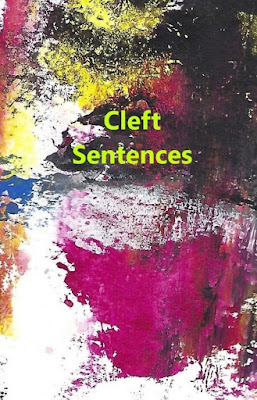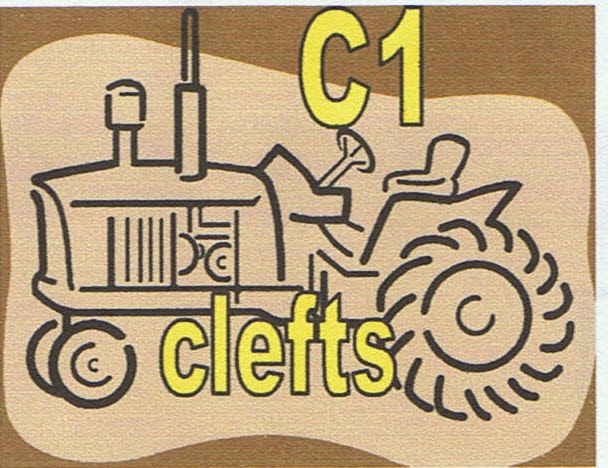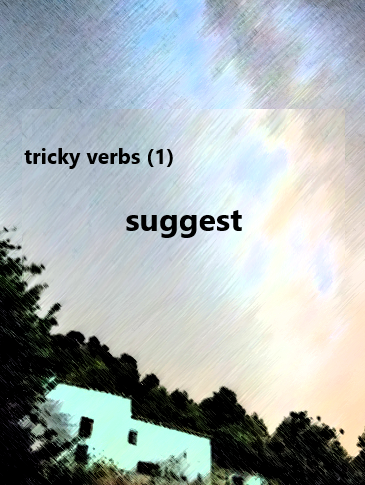CLEFTS from THE MOP
For more intimacy,
let’s call them “clefties” (“clefty”
being the singular).
Well, these clefties have no legs, have no
tentacles, no tails, but, just like you, they have a skeleton.
Let’s look through
the microscope into a simple example:
·
It
was Neil Armstrong who first set foot on the moon.
the sentence in boxes:
|
It
|
|
was
|
|
Neil
Armstrong
|
|
who
|
|
first set
foot on the moon
|
is a cleft sentence, and
its skeleton is:
|
It
|
|
Verb
to Be
|
|
Highlighted element
|
|
who/that
|
|
rest of the sentence
|
And like you, they
have secrets, which, like your own secrets, everybody gets to know:
1.
The subject is always “it”
(good news), even if you are going to talk, or write, about one individual or
159 people.
It was my brother and his friends who were involved in the brawl
2.
The verb is always “to be” in
the third person singular, because the subject is always “it”, even if you are
going to talk, or write, about 1 person or 351 people.
It was Mr Cortés and Mr Columbus who came to see you
3.
The verb, to be, gives us the
time reference: past, present, future, perfect or not, or the modality:
It must be my brother
who wants to get in touch with you. He’s so heavy!
4.
The pronoun: two
possibilities:
WHO: look
at the examples given and notice that the highlighted element (Neil
Armstrong/Mr Cortés and Mr Columbus/your brother) is a personal subject of the
verb that comes after it: set foot/came to see you/wants to get in touch), so
the pronoun to link it with it is “WHO”.
THAT
(famous “THAT” that cannot always be omitted): it is used when the highlighted
element is not a person or it is not the subject of the verb that comes after
it. Let’s have a look at some examples of this well kept secret:
a)
It was in London
that they met (place)
b)
It was yesterday
that she phoned (time)
c)
It was in his
new pyjamas that he went to the ball (complement)
d) It was by
helicopter that he got to the top of the mountain (transport)
e) It was Queen
Victoria that John met at the disco (object of verb “meet”)
And.......... almost anything can be highlighted, or
emphasized, but don’t shout it out, keep it a secret. Look at the following sentence.
Each letter matches the part in the sentence with its clefty below, “a” with “a”, “b” with “b”, and so on.
a)
It was last Saturday that my heavy uncle went
to the ball with Ann in his new purple suit on horseback.
b)
It was on horseback that my heavy brother went
to the ball with Ann in his new purple suit last Saturday.
c) It was in his new purple suit that my heavy
uncle went to the ball with Ann on horseback last Saturday.
d)
It was with Ann that my heavy uncle went to the
ball in his new purple suit on horseback last Saturday.
e)
It was to the ball that my heavy uncle went
with Ann in his new purple suit on horseback last Saturday.
f) It was went..... NOOOOO! This cannot be
highlighted by means of clefties because…
clefties hate highlighting verbs.
g) It was my heavy uncle who went to the ball with
Ann in his new purple suit on horseback last Saturday.
OK. But let’s try
something else:
h) It was heavy that my uncle.....NOOOOOOO!!!! Clefties also hate highlighting adjectives when they refer to the
subject by means of verb to be or
verbs of the senses (subject complement).
The good news is
that in Spanish we have a similar skeleton, I mean syntactic structure; the bad news is that the relative pronoun used
does not always coincide with the English one.
So, in
It was Cortés who conquered Mexico → Fue Cortés quien conquistó Méjico
there’s absolute
coincidence,
but in
It was on Friday that
they met → Fue ayer cuando
se conocieron
there is not
absolute coincidence, for in English “that”
is used as linking pronoun whereas in Spanish it is “cuando” (This has become a debatable point, though, in the last
years, probably decades).
Why not “When” and “where”
Yes, they are
used, although only in some cases. In some grammar we’ve seen that they are
used when the “place” or the “time” are not introduced by a preposition. In any
case, “when” and “where” are becoming, or have become, very popular. The
problem is, or rather you may have a problem, if you are taking a formal exam.
If we were you, we’d stick to the traditional grammar, “that”.
This is about all
you need to know about clefties,
formally Cleft Sentences. Or you might be interested in the fact that “cleft”
is one of the past participles (there are three) of the verb “cleave”, which
means “split, sever (cut)”, and, as you can see a “cleft sentence” is a
sentence that has been split in several parts.
Don’t be afraid,
or lazy: make your own examples of “clefts” and say them aloud; record them if
you can and then listen to them.
In
the following text underline the clefts and pseudo-clefts.
It was five o’clock in the morning when he woke
up with a start. And it was precisely at that time that he began to see people
around him under a different light. He jumped out of bed and ran to the
kitchen. He noticed it was raining outside. ”Just a drizzle”. “It was on a day
like this that I arrived from Somalia”, he thought. At that very moment, he
heard it again; this time clearly. “It can’t be in my own house,” he said to
himself. It must be the neighbour who wants to play a joke on me. It was a
baby’s wailing? It was a dog whining? It was a turkey gobbling? He looked out
of every window. It was through the living-room one that he found the best
view. There, in the drizzle, lit by the street lamp was the neighbour. He must
be looking for whatever made that wail or whine or gobble, he said to himself.
What I can’t understand is why he is not carrying an umbrella. Something else I
can’t understand is why he doesn’t have a torch, either. Weird. It was at that
very moment that he got an answer: the neighbour spread out both arms,
looked up at the dark moonless night, and began to crow.
Rewrite
the following sentences in order to emphasize the
underlined
stretch (phrase) using the word/s in brackets.
1.
The
Vikings were the first
to arrive in America. (It)
2.
Byrd
invented television in 1927. (It)
3.
She
became Miss Gold Prawn in 2014, not in 2015. (It….not)
4.
Popeye’s
eyes popped out as Olive Oyl passed by. (It)
5.
Mrs
Petula Pride’s arrogance puts me off. (It)
6.
They
saw a green teletubby in their own dining-room. (It)
7.
Under
the table they found an
only-God-knows-where-it-came-from dinosaur bone. (It)
8.
The
bank robbers rushed to the border in a green and yellow car with pink elephants
on the doors because they didn’t want to
be noticed. (It)
9.
Jane
Porter didn’t like the jungle at all, but she liked Tarzan. (It)
10.
Mr
Periscope didn’t peep through the half-closed window, but through the
keyhole. (It …not)
KEY
Exercise A:
Recognition
1.
And
it was precisely at that time that he began to see people around him under a
different light. (cleft)
2.
It
was on a day like this that I arrived from Somalia” (Cleft)
3.
It must
be the neighbour who wants to play a joke on me. (Cleft)
4.
It
was through the living-room one that he found the best view. (Cleft)
5.
It
was at that very moment that he got an answer. (Cleft)
Exercise B:
Transformation
1.
It
was the Vikings who
first arrived in America.
2.
It was in 1927 that Byrd invented television.
3.
It was not in 2015 that she became Miss Gold Prawn, but in 2014.
4.
It was as Olive Oyl passed by that Popeye’s eyes popped
out. (True: Olive Oyl the character’s full name)
5.
It is Mrs Petula Pride’s arrogance that puts me off.
6.
It was in their own dining-room that they saw a green
teletubby.
7.
It was under the table that they found an
only-God-knows-where-it-came-from dinosaur bone.
8.
It was because they didn’t want to be noticed that the bank
robbers rushed to the border in a green and yellow car with pink elephants on
the doors.
9.
It was the jungle that Jane Porter didn’t like at all, but
she liked Tarzan.
10.
It was not through the half-closed window that Mr Periscope
peeped, but through the keyhole.
Note:
who
cannot me omitted when it is the subject of the second verb, the verb that
follows it (the subject of the clause, to put it grammatically); while that
cannot always be omitted.









Comentarios
Publicar un comentario